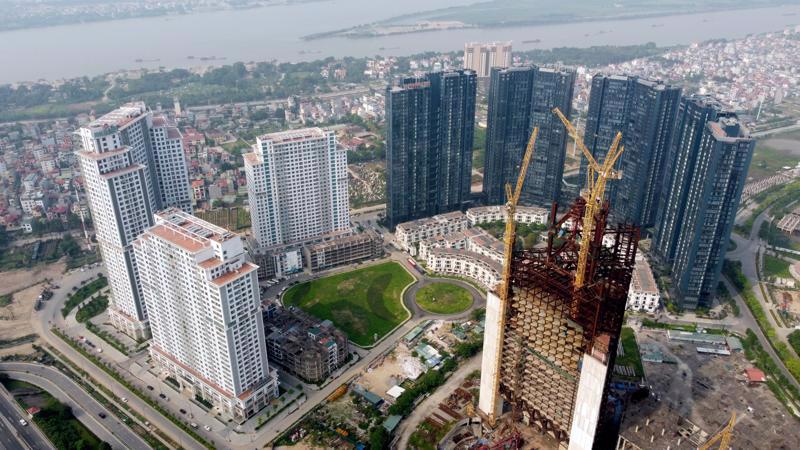Despite facing a host of difficulties, foreign investor interest in Vietnam’s real estate market continues to grow, according to Savills’ research released in February 1.
The Foreign Investment Agency (FIA) at the Ministry of Planning and Investment (MPI) has said that, as of December 20, total FDI registered in Vietnam stood at nearly $36.61 billion, an increase of 32.1 per cent over the same period of 2022. In particular, newly-registered capital reached nearly $20.19 billion, an increase of 62.2 per cent over the same period last year. The number of newly-registered projects totaled 3,188, an increase of 56.6 per cent.
Both new projects and newly-registered capital have increased sharply.
In addition to newly-registered capital, 2023 also recorded 1,262 registered projects adjusting their investment capital, an increase of 14 per cent over the same period last year, with total additional capital of more than $7.88 billion.
Fitch Ratings recently upgraded Vietnam’s long-term national credit rating to “BB ” from “BB”, with a “Stable” outlook.
Vietnam’s GDP growth is expected to reach 6-6.5 per cent this year, thanks to stable FDI flows and the government’s efforts to overcome the difficulties facing the real estate industry, increase public investment, and introduce timely economic policies to stimulate growth.
The market recorded a large amount of investment in the fourth quarter of 2023, Savills noted.
Meanwhile, South Korea’s largest beverage manufacturer, HiteJinro, invested in a new factory on more than 8.2 ha with capital of over $100 million in northern Thai Binh province. In addition, the Deli Group from China invested $270 million on about 21.2 ha in the expanded Dai An Industrial Park in northern Hai Duong province. South Korea’s Hyosung Group, meanwhile, is to build a carbon fiber and materials factory with total investment of about $720 million at the Phu My II Industrial Park in southern Ba Ria-Vung Tau province.
In the retail segment, the market also saw vibrant activities from foreign investors. In September, Lotte officially opened Lotte Mall West Lake Hanoi with a GFA of more than 354,000 sq m. At the same time, THISO opened a third Emart hypermarket in Ho Chi Minh City and plans to invest in the northern region after purchasing a 2.4 ha land plot in the western area of West Lake in Hanoi.
Regarding the office segment, 85 per cent of fast-growing companies in Vietnam must commit to environment, social, governance (ESG) principles, which is also a factor leading to the expected increase in demand for offices that meet green standards in the market.
By 2026, Ho Chi Minh City is expected to welcome 300,000 sq m of new office space meeting Grade A standards, such as The Nexus project and VP Bank Saigon Tower. Furthermore, more than 80 per cent of the city’s future Grade A and Grade B supply will meet green standards.
In Hanoi, from now until 2026, 15 new projects will provide more than 389,770 sq m of office space. Grade A is expected to account for 86 per cent of this future supply. Projects include Grand Terra, Taisei Square Hanoi, Tien Bo Plaza, 27-29 Ly Thai To, and others in the Starlake urban area. Green office space will account for 18 per cent of future office floor space in the capital.
Many large investors launched new housing products in the closing months of 2023, including The Privia project in Ho Chi Minh City and Canopy Residences and Lumière Evergreen in Hanoi. The next phases of the Akari City and Glory Heights projects will also launch new products.
Mr. Matthew Powell, Director of Savills Hanoi, said another good sign is that the market has recently seen the approval of important legal amendments, including the Law on Real Estate Business (amended), the Law on Housing (amended), and the Land Law (amended).
“The adoption of these Laws can be seen as a positive sign for the investment market next year, boosting investor confidence,” he added. “The Vietnamese market, with real demand for housing as well as confidence in the office and industrial real estate sectors, will be key to the start of a new cycle this year. However, it is still necessary to wait for legal documents to be able to observe clearer changes.”









 Google translate
Google translate